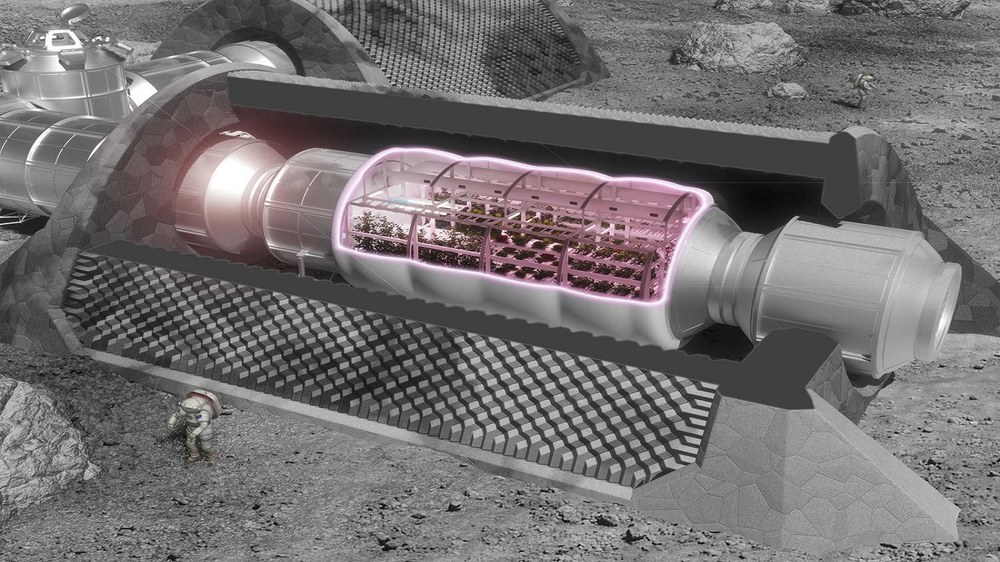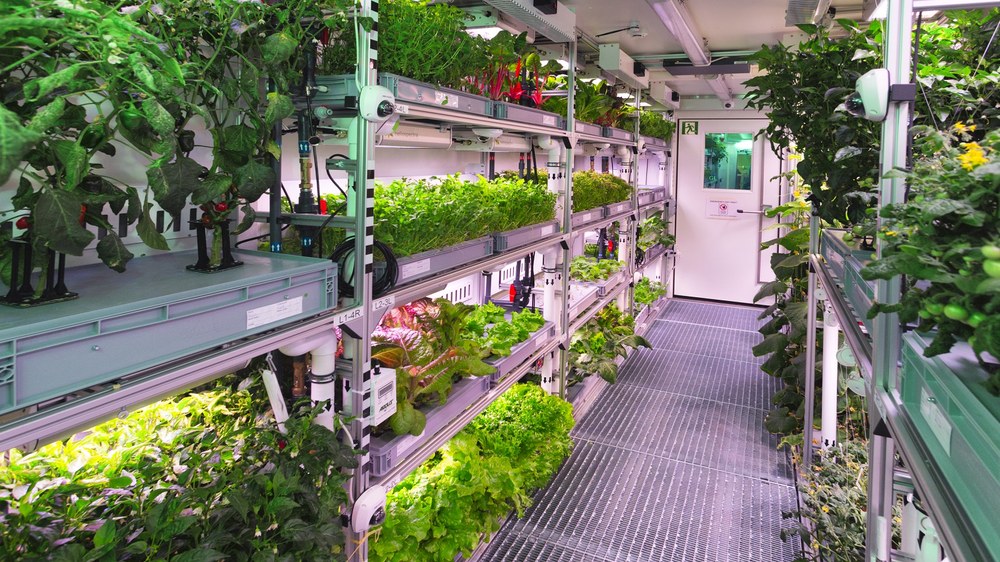Planetary Infrastructures

- For a successful human space exploration strategy, resources such as water, oxygen, food, but also rocket fuel, energy, habitat building materials and many different types of consumables need to be produced and appropriately recycled in the future outposts on Earth. The combination of the two approaches, recovery and recycling, is the main focus of the Planetary Infrastructures research area. The group is managed by the Systems Analysis Space Segment (SRS) department at the DLR Institute of Space Systems in Bremen (Germany). The department operates the Institute's Concurrent Engineering Facility (CEF) as well as the Planetary Infrastructures Laboratory, including the Space Habitation Facilities Lab (EDEN Lab), the ISRU Breadboard (SMU Lab), the 3D Printing Farm and the EDEN ISS Research Greenhouse in Antarctica.
EDEN Initiative
In 2011, the DLR Institute of Space Systems launched its research initiative EDEN: Evolution & Design of Environmentally-closed Nutrition-Sources. The research initiative focuses on bioregenerative life support systems (BLSS), in particular greenhouse modules, and how these technologies can be integrated into future space habitats. The aim of the EDEN team is to further advance the latest cultivation technologies and adapt these developments to space-related applications. Even if the current scenarios for future manned missions to the Moon and Mars are still several years away from realization, the development of these technologies must begin today. This is the only way to implement highly reliable and resource-efficient BLSS into the mission architecture for humanity's journey to the Moon and Mars.

Synergetic Material Utilization
The Young Investigator Group Synergetic Material Utilization (SMU) was founded in 2021 after winning an internal DLR competition. The group focuses on the development of technologies for in-situ resource utilization (ISRU) on the Moon and Mars and how synergies between ISRU and life support systems can be established. The group consists of two PhD students, several student assistants and the group leader Dr. Paul Zabel. The current research focus is on three areas: 1) regolith beneficiation and utilization, 2) in-situ production of fuel and consumables and 3) development of joint ISRU-LSS infrastructures. In the first area, a processing plant is currently being built to process lunar regolith before use. The aim of the second area is to develop a prototype for the extraction of water from the lunar surface. The third area focuses on a joint water-hydrogen-oxygen infrastructure for a future space habitat.

Planetary Infrastructures - Highlights
Contact
Prof. Dr. Daniel Schubert


